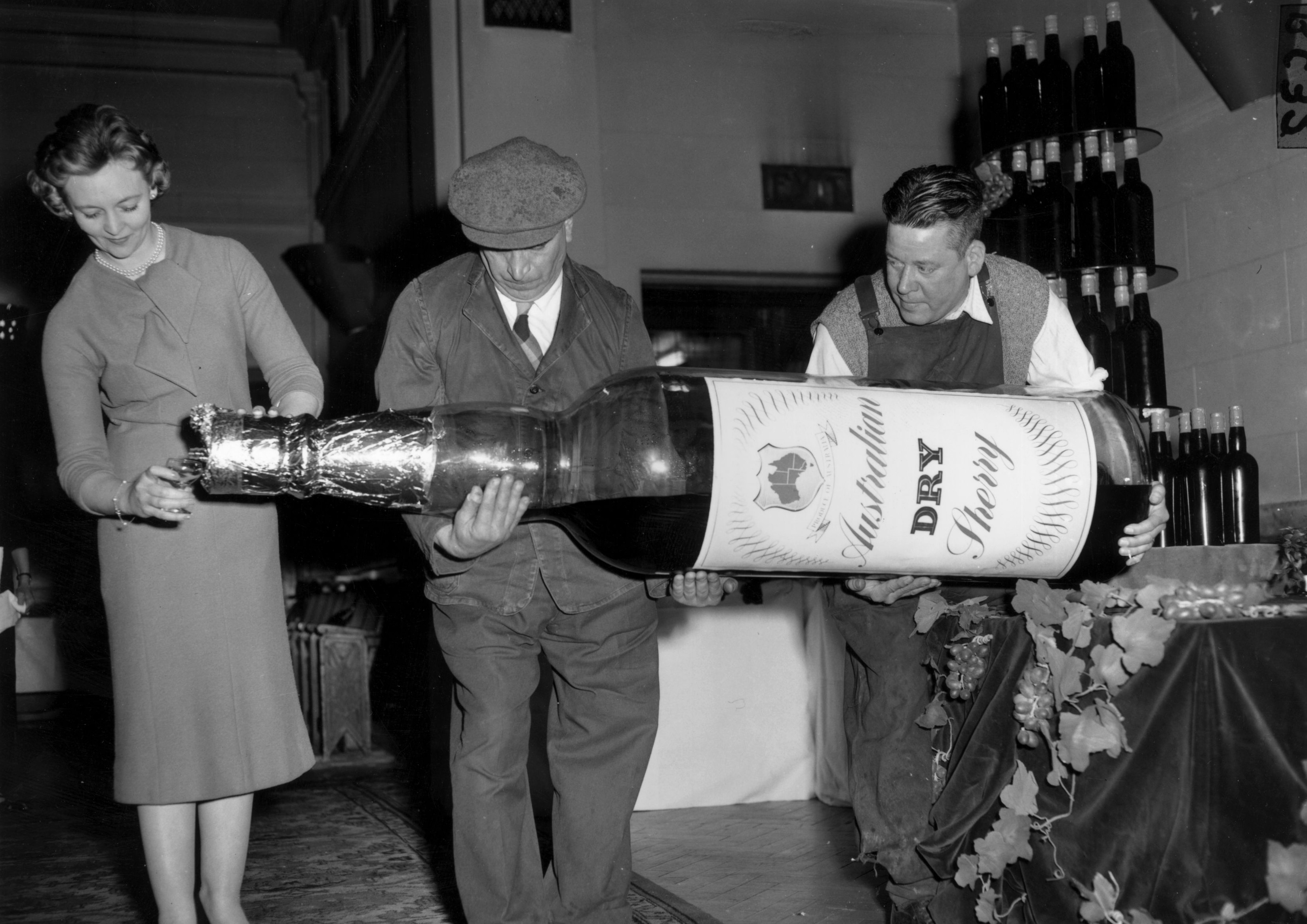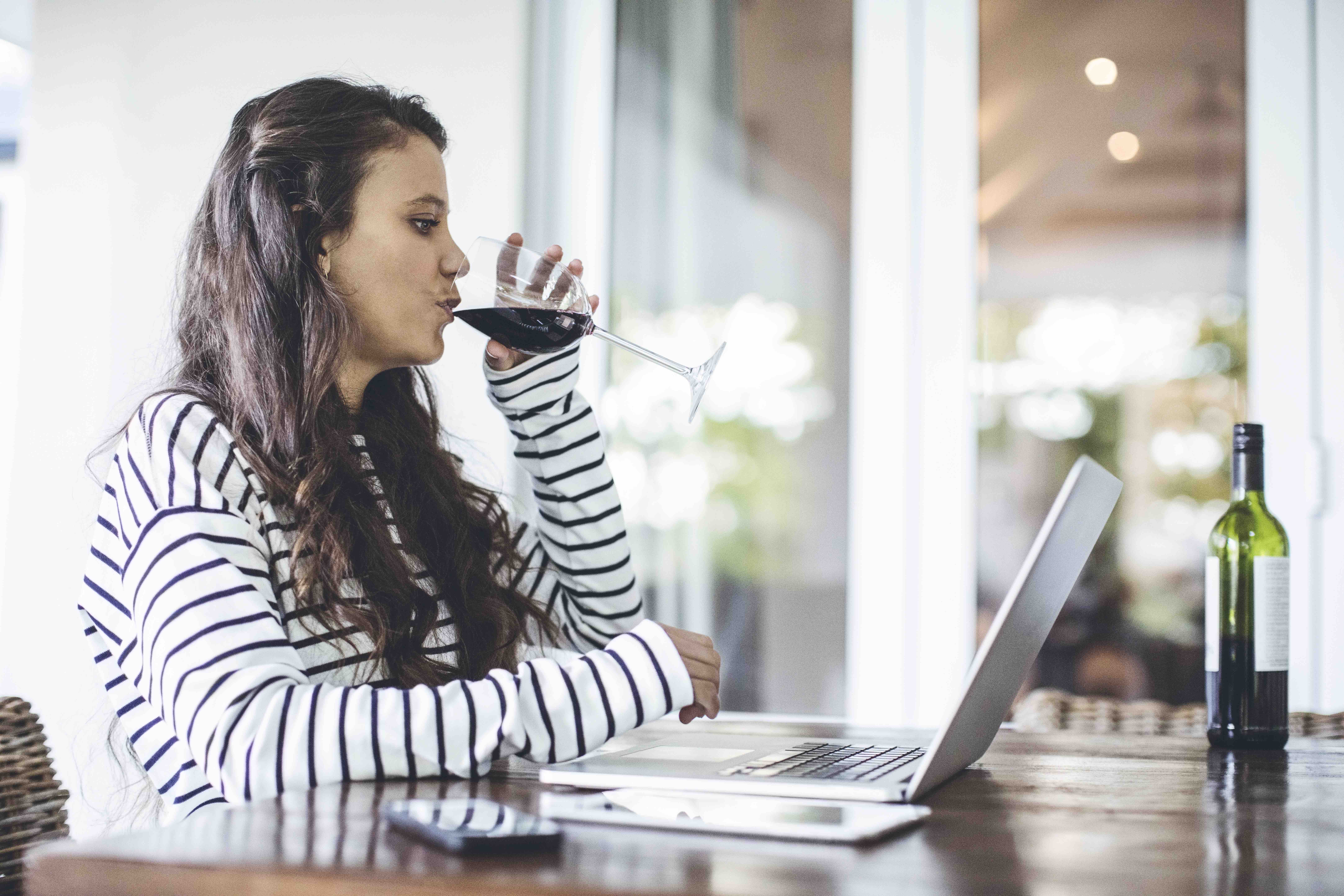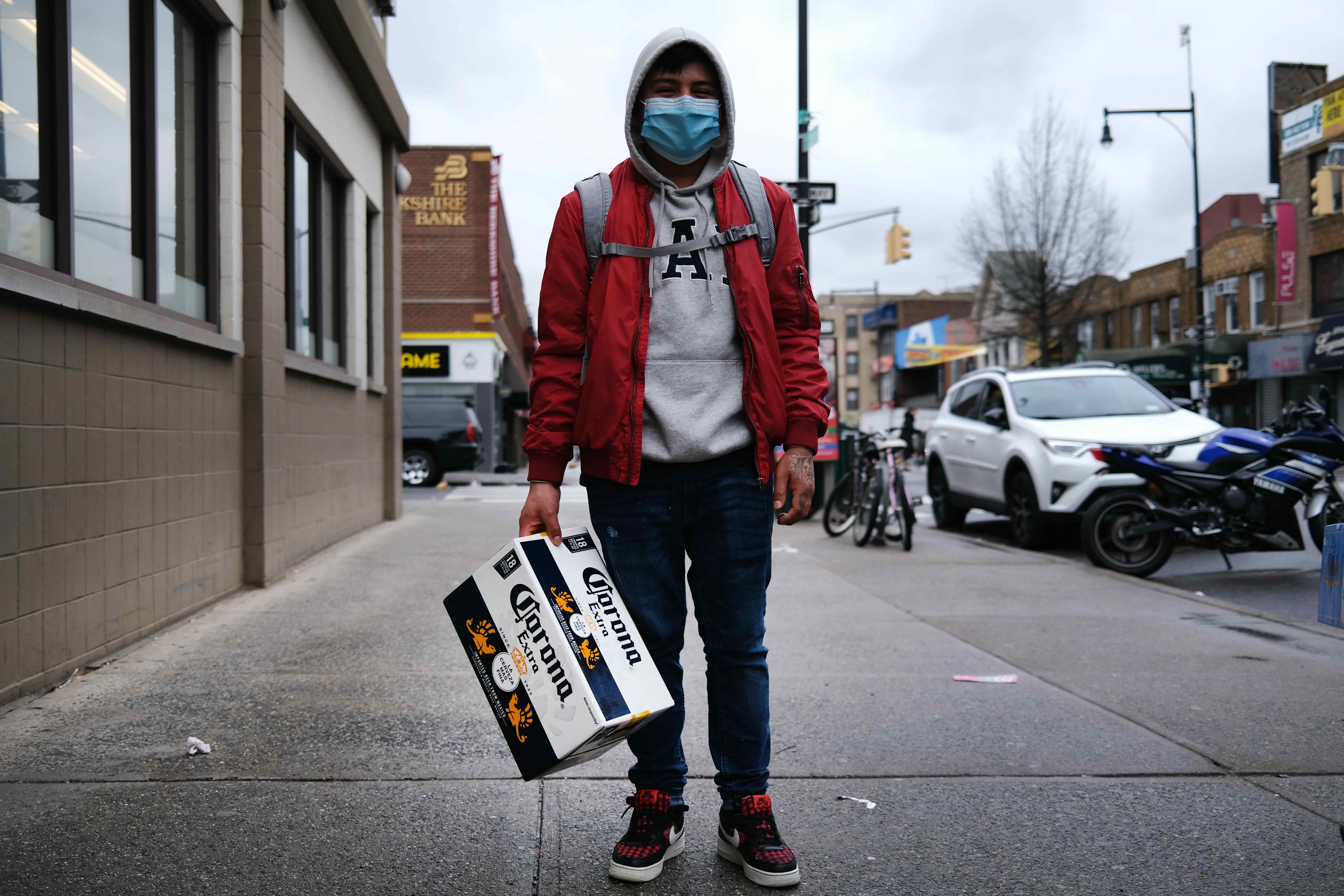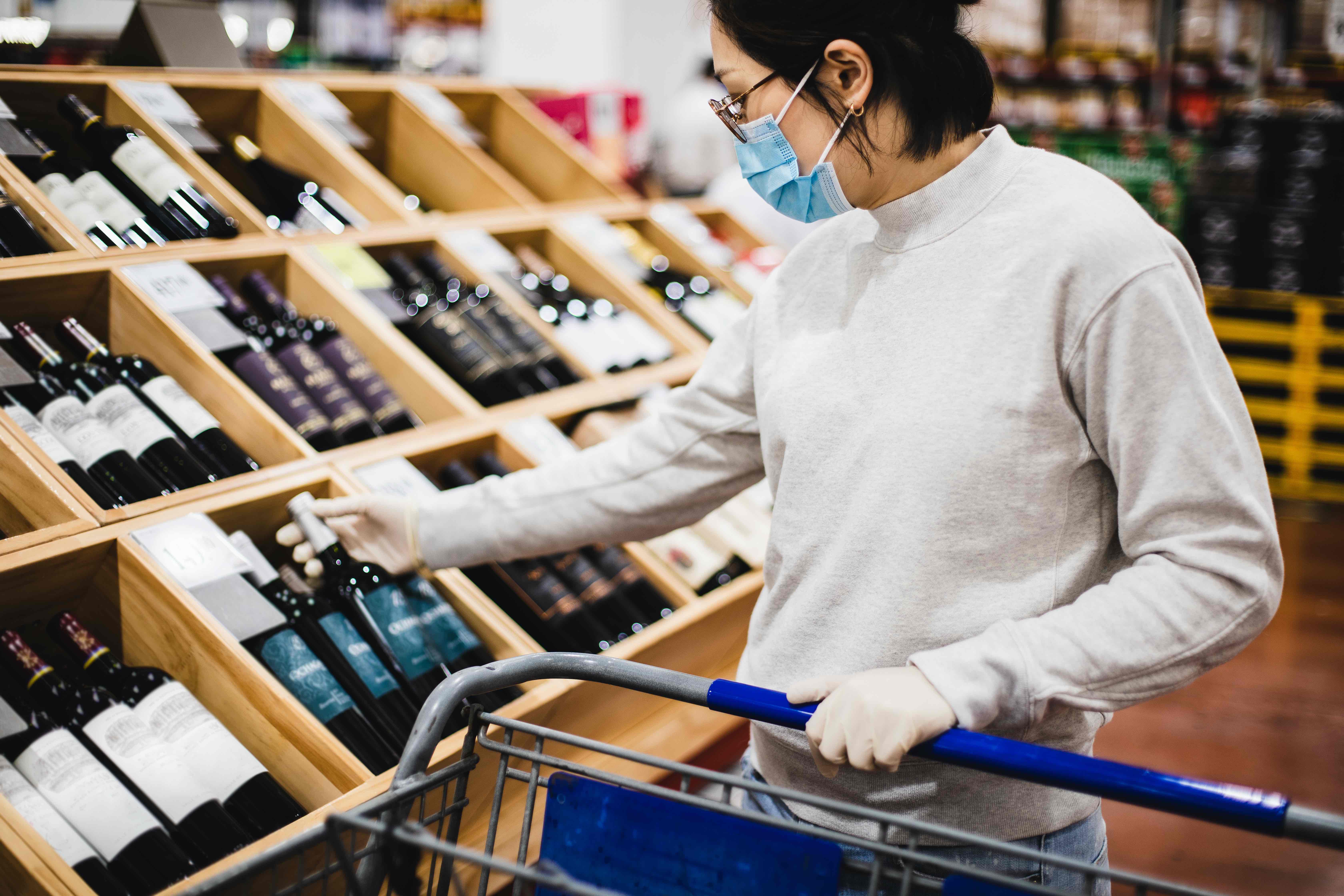
Health & Medicine
What is COVID-19 doing to our mental health?

Our country has a long and often troubled relationship with alcohol, and COVID-19 isolation has the potential to bring out the worst of our national battle with the bottle
Published 1 May 2020
Australia has had a long, roller-coaster ride with alcohol.
As in many countries, alcohol is undeniably entwined in our ‘social DNA’. It helps us celebrate, commiserate, unwind and socialise.
But we haven’t always been heavy drinkers.

Our alcohol consumption has varied much more dramatically than is the popular myth – from very high levels in the 1830s to very low levels in the temperance era of the Great Depression, followed by the major post-World War II upswing, to a peak in the mid-1970s.
COVID-19 and the social distancing measures present yet another pivot in our national relationship with booze. For many, it is difficult to fathom our society in its absence.
Despite this, the darker side of alcohol use and misuse is something we are well acquainted with. We know all too well that heavy alcohol consumption leads to chronic physical and mental illness, fuels interpersonal violence and reduces workplace productivity.

Health & Medicine
What is COVID-19 doing to our mental health?
The past two months have seen our society altered in the broadest, fastest and most profound way since World War II. Australians have had to self-isolate and radically change our way of life.
While strict social distancing remains in force, many have had to contend with lost job security and increased worry about loved ones and our own physical and mental health.
So, it’s important to reflect on how and why this may affect our alcohol intake and its ramifications for our nation.
COVID-19 unleashes a new array of challenges for Australia. While anxiety and stress associated with it is to be expected, managing these reactions can be extremely challenging.

The impact of stress, anxiety and mass trauma on alcohol consumption has been well studied.
The Alcohol and Drug Foundation says experiences of mass trauma like terrorism, mass shootings, natural disasters and economic crises increase alcohol use and abuse.
On an individual level, personal stressors like financial stress, death of a loved one or relationship strains similarly drive increased alcohol consumption, with 40 per cent of Australians saying they use alcohol as a coping mechanism for stress.

Education
The psychology of isolation
This is concerning, given that COVID-19 involves mass trauma compounded by numerous individual stressors.
As a nation, there is extreme uncertainty about the future for many who have lost their jobs or taken pay cuts.
Many have concerns for their own health and the health of loved ones. Many relationships have had to navigate the added stress of quarantining with partners or family members.
This is particularly problematic for individuals facing domestic violence and strained relationships. Furthermore, many people report suffering from loneliness, social isolation and boredom.

What’s worse is that our normal routines, outlets and ways of coping with stress have been inextricably altered.
Our work relationships have simply disappeared for many. The gym is now closed. Up until recently, a face-to-face catch-up with a friend was banned. An appointment with our GP or psychologist is now via telehealth.

The question we now need to ask ourselves is how have these radical societal changes affected our drinking patterns?
A recent poll conducted by the Foundation for Alcohol Research and Education (FARE) from 3-5 April 2020 found some alarming results. The survey found that 20 per cent households reported buying more alcohol than usual since the COVID-19 outbreak. In these households:
Seventy per cent of Australians were drinking more than usual since the COVID-19 outbreak
32 per cent are concerned about the amount of alcohol they or a loved one is consuming
People are drinking more alcohol that they planned or thought they had (28 per cent), more often (34 per cent drinking daily), earlier in the day (20 per cent) and on their own (28 per cent drinking on their own more often)

This report is mirrored in sales data, with online stockbroking firm Commsec reporting spending at liquor stores was up 86 per cent compared to the previous year.
Although this rise was offset by the forced closure of venues serving alcohol (which normally account for approximately 20 to 25 per cent of liquor sales), Australians still spent 34 per cent more on alcohol in March 2020 than during the same period last year.
Our data in Australia is in some contrast to the recent Opinium survey carried out in the UK between 8-14 April for the charity Alcohol Change UK which reports that:
One in five are drinking more
One in three are taking steps to manage or stop drinking
Six per cent had stopped entirely

Health & Medicine
How to take care of yourself if you have COVID-19
Many of us may find it challenging to manage our drinking during the COVID-19 era, so it is important to have strategies to manage alcohol consumption during this stressful period.
The first myth that needs busting is that alcohol kills COVID-19.
As per the recent statement from the World Health Organization (WHO), alcohol consumption “doesn’t protect against COVID-19” and is associated with a range of negative health impacts, increasing an individual’s susceptibility to COVID-19.
To manage our alcohol intake, one of the simplest things we can do is count our drinks and be mindful of changed drinking habits like drinking earlier in the day, alone, or to hazardous levels.

Drinking accountability apps like Hello Sunday Morning, are available to help individuals track their drinking and seek online counselling if they or their loved ones are concerned.
People also need to look to other methods of managing stress like mindfulness, meditation, eating well, exercise, yoga, ensuring adequate sleep, connecting to friends and seeking support from professionals.
Managing hazardous drinking in the COVID-19 era should also be the responsibility of our national, state and local governments.

Sciences & Technology
Mapping our COVID-19 recovery
Firstly, government must keep a very close eye on the marketing of alcoholic beverages (and junk food).
The recent advertising of ‘alcohol survival kits’ with the tag line “a bottle a day keeps the iso boredom away” and iso-linked six packs marketed to help you “wine-down” in lockdown are unacceptable and the Federal government should be increasingly prepared to intervene to prevent harmful advertising.
Secondly, governments have a responsibility to regulate and restrict the availability of alcohol to protect the community.
Limiting both the density of outlets as well as the hours and days they may sell alcohol are effective measures in reducing alcohol problems.
The Western Australian government has led the way by applying some sensible restrictions to alcohol purchasing and other state, territory and national governments should look at their current policies.

Thirdly, we need a clear public health campaign on the hazardous impacts of drinking, informing people about safe drinking in the COVID-19 era and how to seek professional help to manage hazardous drinking.
Looking beyond the immediate impacts of the pandemic, problems associated with alcohol don’t appear to be going away.

Business & Economics
The toxic spread of COVID-19 racism
Alcohol use and misuse are too entwined in our nation’s history.
While wine companies predict that the shift to online purchasing and at home consumption will stick around in the medium term, clinicians and public health professionals worry that the changed pattern of drinking could become a habit for many people.
But it remains to be seen what the long-term impact of COVID-19 on alcohol consumption will be.
Dr Michael Livingston, a senior researcher at the Centre for Alcohol Policy Research, says that in times of economic recession drinking usually goes down overall (per capita consumption), but heavy drinking can go up.
What is clear is that governments and public health organisations need to adapt and remain particularly vigilant in their response.
Just as our hospitals need clear contingency plans to manage COVID-19, our public health sector needs to prepare adequately for the potential COVID-19 related alcohol harms that may result.
The University of Melbourne is running a series of short public courses to provide the health workforce with evidence-based information and language to confidently address questions surrounding COVID-19 from patients, colleagues and the general public. For more information, visit the MDHS website.
Banner: Getty Images